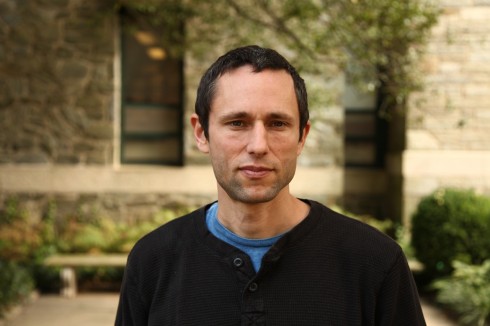A great read.
Robin Wall Kimmerer is an environmental biologist at SUNY, and wrote this beautiful article in Emergence magazine.
Gist: if you look at natural harvests, they are quite abundant. The idea of abundance allows people to think in terms of community, collaboration, and gifts. Since economics is obsessed with scarcity, the language becomes obsessed with efficiency, competition, and dare I say, greed.
Watch this video on the abundant urban garden.
I've been struggling with the idea that economics should be defined as the "study of choice facing scarce resources." It's the definition in many many - mostly American - textbooks. Even the left-leaning ones like Krugman or Stiglitz.
Since my days in university, I've felt that this is too narrow, and supported the view that economics should be the science that studies economic systems. This is a broader definition, which is rooted in the Greek etymology of the word economic - as Kimmerer points out. This allows the economist to view production and material culture as a system, not as a choice problem based on efficiency criteria.
Systems Analysis, widely used in engineering and management, allows one to think in terms of the usual suspects like inputs, processors, and outputs, but also in terms of feedback, control, environment, and boundaries. It's really changed the way I think about economies and economics. I've since added this to my Econ 101 lectures.
I am not saying we don't have to make choices. Opportunity Costs Matter. But I have to say that I don't like the language. So I started bringing in this idea of abundance into my course work a few years ago. Kimmerer is helping me put more beautiful words, and images, on this thought process.
Lots to unpack here.
First, is scarcity even a problem?
If scarcity is such a problem, why are we producing so much carbon? And so many cars?
If everything is so scarce, how come we've been able to double human population on earth every 15 years for the past century?
Economists are confusing scarcity, rarity, and the 'Problem of Scarcity'. Things can be abundant, yet still have this problem of scarcity, because they are not in infinite supply.
Well, of course.
Nothing is infinite.
So everything is scarce.
Kimmerer's issue with this is not so much the deductive logic, as the semantic consequences of repeating words like scarcity. To everyday people, including my students, SCARCE means RARE. First year university students won't always think in subtle logical terms.
SCARCE means RARE.
So when you discuss abundance, the economics profession recoils. I've seen it happen in department meetings and conferences.
Technically, resources can be abundant AND scarce. But that's not the main idea that gets propagated.
Which is why this image - a real natural fact - of the abundance that occurs at harvest times is really interesting. People who garden go through this most years. Production of apples, blueberries, and tomatoes, are almost overwhelming. Unless you preserve and can everything, you are giving away baskets of food that would otherwise go bad.
My struggle with the idea of scarcity comes from reading - and adhering to - the works of Jane Jacobs. I've even published a book about Jacobs' economic principles, which are either ignored or misunderstood by mainstream economists. Jane Jacobs even wrote a book on the ecological principles that parallel the human economy: The Nature of Economies. It's brilliant.
I wish Kimmerer had quoted from Jacobs, but that's not a huge issue. She quotes abundantly from Charles Eisenstein, whose work Sacred Economics, I will have to read ASAP.

On scarcity, I would use the nuance of rarity, as being the opposite of abundance. Sometimes things are rare. Don't look for fresh tomatoes in the winter. Abundance has its periodicity.
Also, there is environmental wisdom in reminding ourselves that even if resources seem to be abundant, we shouldn't over-exploit them, because that underlying scarcity will come around and bite us in the rear end!
I like to give lots of examples of extinct resources. In Quebec, we used to have a wild bird called 'Tourte', which was very abundant around Montreal. The bird was hunted to extinction, mostly by US farmers in the south. Today, Quebeckers still make a savoury meat pie called 'Tourtière', but it's not the same because the 'tourte' has gone extinct.
That Kimmerer poses the question of abundance vs scarcity is obviously linked to her Indigenous background. She is a descendant of the Potawatomi nation, a key member of the Council of Three Fires with the Ojibway and Odawa. She lives in Syracuse, New York, where she's probably been in close contact with the Haudenosaunee (Iroquois) whose traditional agriculture was quite advanced, especially the well-known Three-Sisters gardening technique. She describes in intricate detail her knowledge of botany and biology, linking her views on economics to the Serviceberry.
Which brings me to bridge her work with that of Carol Anne Hilton, the author of Indigenomics, Taking a Seat at the Economic Table. Hilton, a Hesquiaht woman of Nuu chah nulth descent in now-called British Columbia, proposes an Indigenous world-view which re-writes economic principles. These principles fall into line with sustainability and ecological economics.
So are resources scarce? I think so. Life won't always be easy.
But it's important to stop using words that entice greedy competitive behaviors that destroy the natural world. Let's recognize that nature produces abundance, and that humans really need it to keep their species from going extinct.
Thanks to Prudence Bessette-Caldairou for sharing the Kimmerer article.